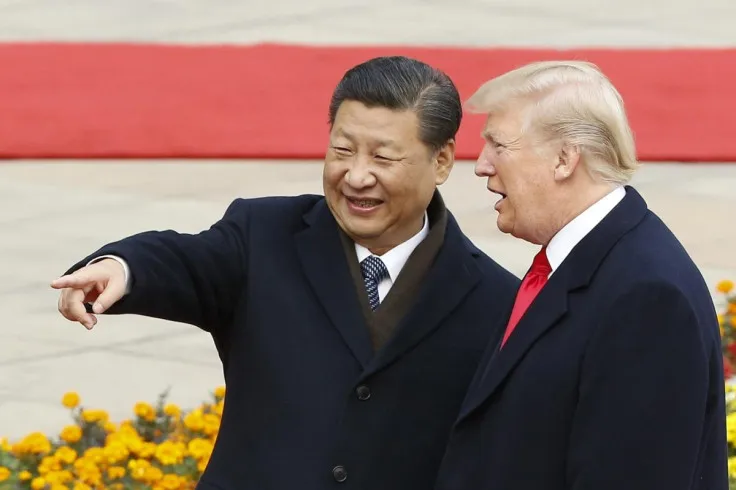
In a bold statement that echoes rising global tensions, China has issued a veiled threat to nations siding with former U.S. President Donald Trump on trade policy, warning that appeasing America could result in devastating consequences. The warning underscores Beijing’s growing fear of economic isolation as Trump pushes allies to decouple from Chinese supply chains.
On April 21, China's Ministry of Commerce declared that countries aligning with U.S. efforts to isolate China would “ultimately be eaten by the tiger,” referencing the dangers of making short-sighted deals with Washington. The metaphor draws on an ancient Chinese saying, implying that temporary gains from the U.S. could lead to long-term damage.
Since returning to the political spotlight, Donald Trump has revived aggressive trade rhetoric, reinstating the “reciprocal tariffs” paused in 2024 and intensifying them against China. U.S. tariffs on Chinese goods now average 145%, with Beijing retaliating at 125%. Trump has positioned tariffs as a way to punish China’s “cheating” and restore U.S. manufacturing.
In return for cooperation, the Trump administration is offering reduced tariffs to nations like Japan, South Korea, and several in Southeast Asia—on the condition that they reduce their reliance on Chinese imports. This effort aims to redraw global trade routes around China, further isolating its economy.
However, China remains an indispensable link in global supply chains. In 2022, the EU’s trade deficit with China ballooned to €396 billion, while China provided 20% of the bloc’s imported goods. In the UK, that number sits at 10%, and in countries like Bangladesh and Nigeria, Chinese goods account for over 25% of all imports.
Even in nations with strong U.S. ties, experts believe complete decoupling from China is “virtually impossible.” Alicia Garcia-Herrero, a senior economist based in Hong Kong, warns that Trump’s trade strategy is “short-sighted and risky,” especially for developing nations that depend heavily on Chinese imports.
Beyond trade, China’s aggressive economic stance mirrors its expansionism in the South and East China Seas. Just as it has built artificial islands to assert maritime dominance, China is now applying similar pressure through economic leverage—using both incentives and retaliation to maintain its global footprint.
While Trump promotes economic nationalism, China’s warning reveals another risk: Beijing may retaliate not just with tariffs but by undermining U.S. influence in the Global South. China’s Belt and Road Initiative continues to funnel billions into infrastructure across Asia, Africa, and Latin America, gaining loyalty where the U.S. is retreating.
The Chinese government’s threat should serve as a wake-up call to U.S. policymakers. While Trump frames the issue as a binary choice—either side with American industry or Chinese communism—the reality is more complex. Washington must offer not just threats, but viable alternatives for countries who rely on both economies.
Beijing’s tiger metaphor isn’t just symbolic—it’s a warning that the U.S. and its allies are walking a fine line. If American policy leans too far into coercion, it risks pushing the world further into China’s orbit.
And while Trump’s trade war might resonate with some domestic voters, its long-term effect could be to drive America’s allies—and even neutral nations—into deeper economic dependence on Beijing.
As China sharpens both its rhetoric and its retaliatory tools, the U.S. must tread carefully. Trade wars may be popular on the campaign trail, but in the real world, they empower authoritarian regimes, strain global alliances, and weaken American leadership in a rapidly multipolar world.